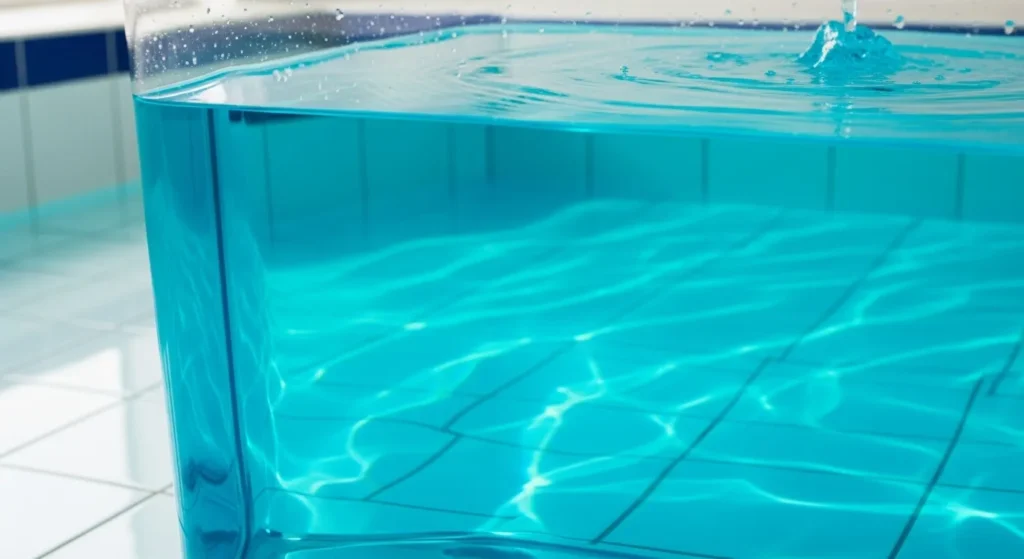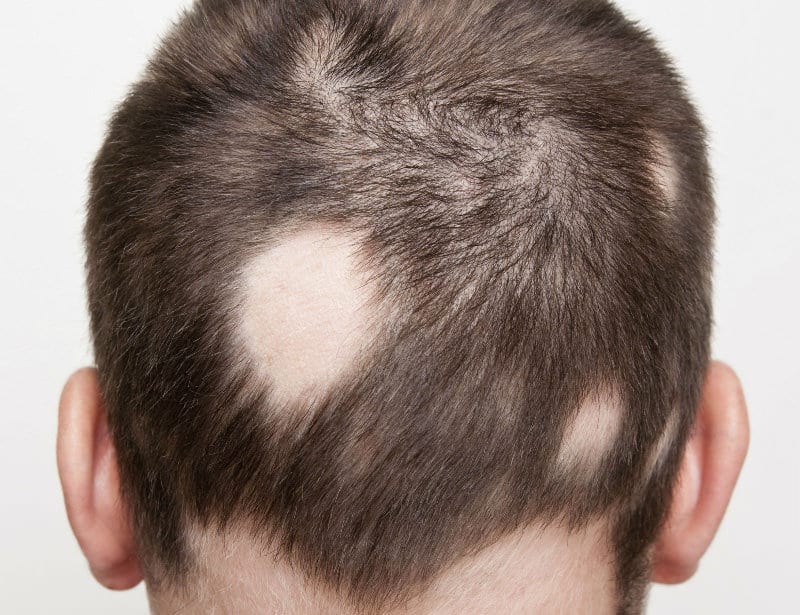Have you noticed extra hair shedding after swimming or using tap water? You might be asking yourself — Does chlorinated water cause hair loss? Chlorine is often blamed for brittle strands, thinning hair, and scalp dryness.
In this article, we’ll explore the science behind chlorine exposure, its effect on your hair, and expert-approved ways to protect your hair health.
Understanding Chlorinated Water
What Is Chlorinated Water?

Chlorinated water is water that has been treated with chlorine to kill bacteria, viruses, and other harmful microorganisms. It’s widely used in public water systems and swimming pools as a disinfectant.
Why Is Chlorine Added to Water?
Chlorine ensures water safety by preventing waterborne diseases like cholera or typhoid. While effective for public health, its chemical properties can impact skin and hair, especially with prolonged exposure.
Where Are You Exposed to Chlorine?
- Swimming pools (highest concentration)
- Tap water (municipal water supplies)
- Showers and baths (daily exposure, depending on region)
Can Chlorinated Water Cause Hair Loss?
Scientific View: Does Chlorine Damage Hair Follicles?
Research shows that chlorine doesn’t directly cause permanent hair loss by damaging the hair follicles. However, it can weaken the hair shaft, making it more prone to breakage, dryness, and thinning, which some may confuse with hair loss.
Difference Between Hair Breakage and True Hair Loss
- Breakage occurs when the hair shaft becomes brittle and snaps.
- True hair loss involves damage to the follicle, preventing regrowth.
Chlorine is more likely to cause breakage and temporary thinning, not true follicular hair loss.
Who Is Most at Risk?
- Frequent swimmers (daily exposure to pool water)
- People with chemically treated or bleached hair
- Children (more sensitive skin and hair structure)
How Chlorinated Water Affects Hair
Chlorine’s Impact on Hair Shaft and Cuticle
Chlorine strips the natural oils (sebum) from your scalp and hair, leading to:
- Cuticle damage (the outer protective layer of hair)
- Increased porosity, making hair more prone to breakage
- Rough texture and dullness
Dryness, Brittleness, and Hair Thinning
Continuous exposure causes hair to:
- Lose moisture
- Become brittle and split at the ends
- Appear thinner due to shaft breakage, especially in longer hair
Scalp Irritation and Follicular Health
Chlorine can dry out the scalp, leading to:
- Flakiness or dandruff
- Itchiness
- Inflammation, which may indirectly affect hair health over time
Hair Loss from Swimming Pools vs. Tap Water
Pool Water (High Concentration Exposure)
Swimming pool water can contain 1.0–3.0 ppm of chlorine, significantly higher than tap water. Repeated exposure, especially without rinsing or protection, can lead to:
- Noticeable breakage
- Straw-like hair texture
- Discoloration (especially in bleached or color-treated hair)
Tap Water (Lower Risk but Daily Exposure)
While tap water contains less chlorine (0.2–1.0 ppm), the daily exposure adds up. It can gradually:
- Dry out the scalp
- Weaken hair structure
- Accelerate damage in already-fragile hair
What Makes a Difference?
- Hair type: Coarse or curly hair retains moisture better; fine hair is more vulnerable
- Water temperature: Hot water opens the cuticle and intensifies chlorine’s effects
- Duration of exposure: More time = more damage
How to Protect Your Hair from Chlorine Damage
Pre-Swim and Post-Swim Hair Care Tips
Before swimming:
- Rinse hair with clean tap water — wet hair absorbs less chlorine
- Apply a leave-in conditioner or natural oil barrier (e.g., coconut oil)
After swimming:
- Rinse immediately
- Use a clarifying or chelating shampoo weekly
- Deep condition to restore moisture
Best Shampoos for Chlorine Removal
- Swimmer-specific shampoos with EDTA or Vitamin C
- Sulfate-free moisturizing shampoos for daily use
- pH-balanced formulas that support scalp health
Home Remedies and Oils That Create a Barrier
- Coconut oil: Locks in moisture
- Aloe vera gel: Soothes the scalp
- Apple cider vinegar rinse: Balances pH and removes buildup
- Olive oil: Forms a protective coating on the hair shaft
Importance of Hydration and Scalp Care
Hydration isn’t just topical — drink enough water to nourish your hair from within. Use:
- Scalp massages with essential oils
- Hydrating masks weekly
- Humidifiers, if you live in a dry climate
Expert Insight
Medical Citations on Chlorine and Hair Health
- Include studies from dermatology journals on chlorine’s impact on hair cuticles and keratin integrity
- Cite swimmer-related hair studies, especially for long-term exposure effects
Recommended Preventive Measures from Hair Experts
- Always wet your hair before swimming
- Use a swim cap
- Avoid hot showers after pool use
- Incorporate protein treatments for strength
What Changes Helped Them Recover
- Switching to sulfate-free products
- Weekly deep conditioning
- Regular hair trimming
- Expert consultation
When to See a Specialist
Signs It’s More Than Chlorine (Medical Hair Loss)
- Sudden clumps of hair falling out
- Bald patches or receding hairline
- Scalp pain or inflammation
Trichology or Dermatology Consultation Benefits
- Personalized hair health assessment
- Ruling out conditions like telogen effluvium or alopecia areata
- Product and treatment recommendations

Recommended Diagnostic Tests
- Hair pull test
- Scalp biopsy (if needed)
- Blood tests for underlying issues (e.g., iron, thyroid, hormones)
Frequently Asked Questions
Can chlorine permanently damage hair?
No, chlorine causes temporary damage like dryness and breakage. With proper care, hair health can be restored.
How often is too often to swim with untreated hair?
Swimming daily without protection can lead to significant damage. Always use a barrier like oil or conditioner.
Does wearing a swim cap protect against chlorine?
Yes, especially silicone caps. While not waterproof, they reduce direct exposure significantly.
Is filtered shower water better for hair health?
Yes. Shower filters reduce chlorine and minerals, making them ideal for sensitive scalps.
What are the signs your hair is damaged from chlorine?
Rough or brittle texture
Split ends
Dullness and lack of elasticity
Increased breakage during combing
Take Your Next Step
Worried your hair is thinning due to water exposure?
Book a consultation with Dr. Rana Irfan in Islamabad today — an ABHRS-certified expert in hair restoration and scalp health. Get personalized advice, diagnostic testing, and hair-saving solutions that work.
